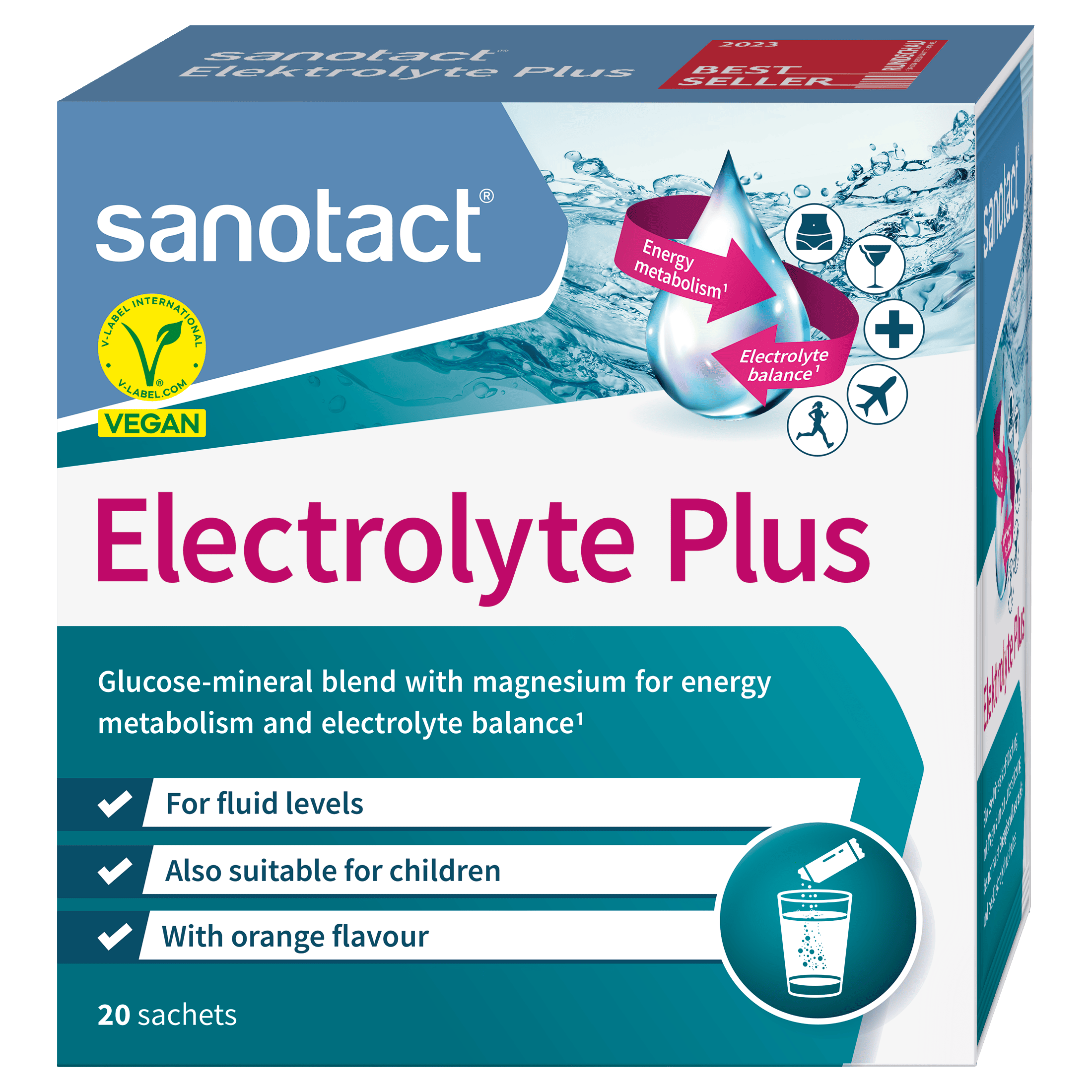What is magnesium?
Vitamin and mineral lexicon
Magnesium is an essential mineral that plays a key role in numerous functions in the body. Magnesium is essential for various bodily functions as it is involved in around 300 enzymes and plays a key role in metabolism, blood pressure regulation and bone cell function. As the body cannot produce magnesium itself, it must be absorbed through food or dietary supplements.
EVERYTHING ABOUT MAGNESIUM
What are the sources of magnesium?
Magnesium can be found in varying quantities in food, both in animal and plant-based foods. Leafy green vegetables as well as cereals and nuts are particularly rich in magnesium and make up approximately 45% of dietary intake. Meat, milk, starch and eggs also have a high magnesium content. Refined or processed foods, on the other hand, have lower concentrations of magnesium as about 80% of the magnesium is lost in the production process. Foods containing magnesium are therefore important for a balanced diet. Magnesium tablets and magnesium effervescent tablets are an additional way of meeting our body’s need for magnesium.
Magnesium intake through food is generally safe and has no adverse effects. The effect of magnesium has been examined in various studies and it has been classified as safe. However, supplements containing high doses of magnesium may result in mild side effects such as diarrhoea.
Bioavailability of magnesium
An important factor is the bioavailability of magnesium, i.e. how well the body absorbs the magnesium from the product. Some magnesium compounds such as magnesium citrate, magnesium glycinate and magnesium bisglycinate are known to be easier to absorb than others such as magnesium oxide.
Who is affected by a magnesium deficiency?
The amount of magnesium needed per day to maintain physical activity depends on a number of factors. The DGE (German Nutrition Society) recommends a magnesium intake of 300 mg per day for adult women and 350 mg per day for adult men. Certain population groups have a higher risk of not reaching the recommended magnesium intake and showing symptoms of magnesium deficiency:
Older people
Older people are particularly at risk due to factors such as reduced appetite and difficulties with eating.
Pregnant and breastfeeding women
Women who are pregnant and breastfeeding are at risk of magnesium deficiency as they have lower levels of serum magnesium. The increase in lean tissue during pregnancy, reduced magnesium excretion in urine and increased bone loss whilst breastfeeding can all increase a person’s magnesium requirements during and after pregnancy. Special attention must therefore be paid to magnesium during pregnancy.
Athletes
Intense exercise can result in magnesium deficiency, which presents in the form of muscle cramps. Insufficient magnesium intake can impair the body’s ability to recover. In such cases, magnesium tablets taken as a supplement can have beneficial effect.
Application areas of magnesium
Muscles:
Calcium and magnesium are both essential to help the muscles to contract and relax properly. A lack of magnesium can result in constant muscle contraction and a lack of relaxation, which may cause muscle cramps. Studies suggest that, by taking magnesium, you can reduce the frequency of muscle cramps or prevent them from occurring. A sufficient level of magnesium is particularly important for athletes, as magnesium deficiency is associated with muscle cramps, tiredness and a loss of performance. A high dose of magnesium can be beneficial for athletes.
Bone health:
Around 50% of the body’s own magnesium can be found in the bones and magnesium plays an important role in mineral and bone stability, as well as the function of bone cells and growth. This dynamic pool of magnesium in the bones reduces with age and it actually drops from 50% in early adolescence to around 10% in older people. To support bone health, it is important to meet your body’s optimum daily magnesium requirements. Levels of serum magnesium also appear lower in cases of postmenopausal osteoporosis. Women diagnosed with osteoporosis are recommended to take a magnesium supplement.
Headaches:
Tension in the neck or head muscles can lead to headaches in connection with changes to the blood vessels or blood pressure. It is believed that magnesium plays a role in approximately half of these headache episodes, particularly with migraines and tension headaches. Blood taken from migraine patients was found to contain lower concentrations of magnesium between attacks. Studies suggest that a magnesium supplement can reduce the frequency of migraine attacks.
Magnesium in pregnancy (additional info on the topic of pregnancy)
Magnesium plays an important role during pregnancy. It not only supports the body’s normal function, but it is also important for the development of the baby. Pregnant women often have high magnesium requirements, as their body needs additional nutrients to support the baby’s growth. A magnesium deficiency during pregnancy can cause a number of issues, including muscle cramps, tiredness and an increased susceptibility to pre-eclampsia. It is therefore important to consume enough magnesium-rich foods or take magnesium supplements to ensure that you meet this requirement. It is advisable to consult a doctor before taking magnesium supplements during pregnancy to discuss the correct dosage and possible effects.




